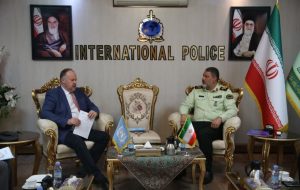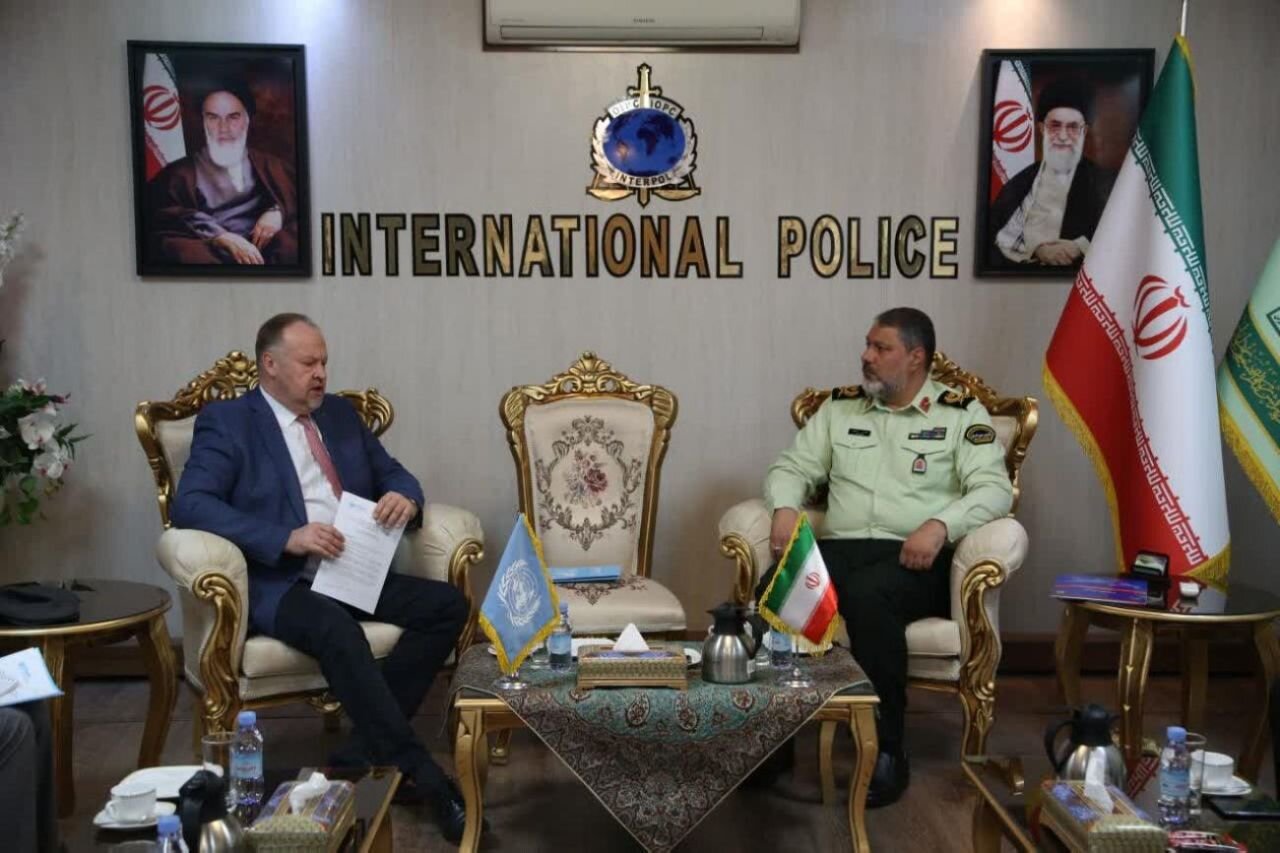UNODC, Iran discuss enhanced cooperation on drug-related crimes
TEHRAN – The United Nations Office on Drugs and Crime (UNODC) and the Iranian law enforcement force have explored ways to boost cooperation in areas related to drug trafficking and drug-related crimes. During a meeting between the UNODC representative in Tehran, Alexander Fedulov, and Director General of Iranian Interpol Brigadier General Majid Karimi, the two


TEHRAN – The United Nations Office on Drugs and Crime (UNODC) and the Iranian law enforcement force have explored ways to boost cooperation in areas related to drug trafficking and drug-related crimes.
During a meeting between the UNODC representative in Tehran, Alexander Fedulov, and Director General of Iranian Interpol Brigadier General Majid Karimi, the two officials revised the activities under implementation, and discussed the scope and perspective of future cooperation, the UN website announced in a press release on May 1.
In this meeting, Fedulov briefed the Iranian side on the recent activities and procurements conducted by UNODC Iran under the generous funds received from the UNODC traditional donors.
He reiterated the readiness of the UNODC to delegate technical and procurement support to the Islamic Republic of Iran under the UNODC Iran Country Partnership Program with the Islamic Republic of Iran.
Brigadier General Karimi, for his part, stated that drugs are obviously one of the pillars of the UNODC mandate as reflected in its name, though various topics on crimes could also be addressed by this Office, and inter alia he suggested cooperation to address challenges posed by drug trafficking and drug related crimes.
This meeting was organized as part of the activities foreseen in the framework of sub-program 1 “Border Management and Illicit Trafficking” and sub-program 2 “Crime, Corruption, and Criminal Justice” of the UNODC Country Partnership Program for the Islamic Republic of Iran.
UNODC supports Iran in fight against drugs
Iran remains one of the major transit routes for drug trafficking from Afghanistan to European countries. The UNODC has built a strong partnership with the Government of the Islamic Republic of Iran in several areas including the capacity building for the Iranian law enforcement and has been providing technical assistance to the Iranian Government in their fight against illicit trafficking of drugs and precursors.
The Iranian anti-narcotics police (ANP) canteen center received a total of ten trained detecting drugs from the UNODC.
The UNODC procured these trained dogs on February 29, the UN website announced in a press release on March 17.
According to the UNODC website, this procurement is part of sub-program 1 of the UNODC Country Partnership Program (CPP) in Iran, with the goal of enhancing the operational capabilities of the anti-narcotics police.
The instructors led a two-week training program to enhance the handlers’ skills in combating illicit drug trafficking across the country.
On February 13, in an effort to boost the Iranian Financial Intelligence Unit (IRFIU) infrastructure in the fight against transnational organized crime, money laundering, and the financing of terrorism, the UNODC in Iran procured 15 desktop computers for IRFIU.
The provision of these computers aligns with the UNODC Country Partnership Program in the Islamic Republic of Iran from 2023 to 2026, to enhance institutional knowledge and capacities in countering various forms of illicit activities related to money laundering, organized crime, and financing terrorism.
The procurement was made possible through the funding received from the Russian Federation.
In January, the UNODC in Iran held a five-day specialized training course for experts and officers from the Drug Control Headquarters, Anti-Narcotics Police, and Customs Administration of the Islamic Republic of Iran in Moscow, Russia.
The course titled “Searching Method of Illicit Drugs with Use of Trained Dogs”, was organized with the cooperation of the Central Customs Canine Training Centre of the Federal Customs Service of the Russian Federation, which is a World Customs Organization (WCO) Regional Dog Training Centre, in Moscow Region, from January 22 to 26.
Anti-narcotics police and law enforcement experts and officers from the Drug Control Headquarters participated in a three-day study visit organized by the UNODC office in Iran from December 4-6, 2023, in Tashkent – Uzbekistan.
The study visit encompassed various activities and topics, inter alia session on “Construction and structure of an optimal canine center, management of an optimal canine center; staffing of an optimal canine center; breeding, health, treatment, food, etc. for drug-detecting dogs”, the report added.
Highlighting the importance of international cooperation in the fight against narcotics, Fedulov hoped that future activities of a similar nature would continue upon the provision of support by donors.
MT/MG
